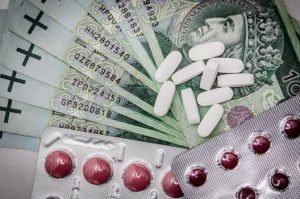Believe it or not, thousands of people around the world today are suffering from being addicted to painkillers. If you’re not someone who has gone through an experience like drug addiction, you might think it’s bizarre. You might see someone who is addicted to one as a failure, an outcast, or simply out of control for letting a drug take hold of their life.
Surprisingly, becoming addicted to painkillers and going through frequent drug cravings can happen to literally anyone. The scary thing about addiction is that it doesn’t care about your race, your social status, what job you have, or how many kids you have at home. If you avidly follow celebrity news, you’ll know that even some of the biggest names like Demi Lovato or Robert Downey Jr. have suffered from opioid overdose and addictions that lasted for years of their lives.
If you abuse drugs for long enough without receiving any education about its side effects, you will develop an addiction. The worst part is, sometimes the effects people experience from opioid withdrawal can be even more intense than the temporary high it provides. Let’s walk through what symptoms opioid withdrawal or heroin withdrawal leave behind and how you can deal with it.

Withdrawal Symptoms To Know
While opioids are the main drug used to deal with painful treatments and recovery, the potential addiction that comes along with using it is a lot is more than uncomfortable. According to Mayo Clinic, long term side effects of using opioids or heroin include heavy nausea or vomiting out of control, intense abdominal bloating or discomfort, frequent constipation, irreversible damage to the liver, brain damage from hypoxia, and high levels of dependence.
If you’re trying to taper off the drug, withdrawal symptoms can include lingering pain in certain muscles, diarrhea or more nausea, intense sweating, feelings of anxiety, water eyes, a quickened heart rate, and even uncontrollable shaking. The severity of these symptoms depends from person to person, ranging from subtle signs to ones that land people in the hospital overnight.
Dealing With Overdose
If someone who is experiencing drug cravings happens to overdose on opioids, their life will be in imminent danger. No one is safe from overdose as many people pass away every year from taking too much in too little time. It’s almost impossible to call yourself an ambulance if you’re the one going through an overdose, but for future reference, know what to do if you recognize the signs in someone around you. Anyone displaying signs of respiratory failure, unusually slow breathing, smaller pupils, physical unresponsiveness, or even blue skin should be taken to the emergency room right away.
Before the paramedics arrive at the scene, prepare beforehand by having Narcan on hand to treat the individual. Narcan is an FDA-approved nasal spray containing naloxone, a medicine used to combat the side effects of opioid overdose. So, make sure to check a person’s responsiveness by shaking the person gently or shouting. Then, make sure to administer one dose of Narcan in one of their nostrils and continue to monitor the person until professionals can take control.
Post Overdose Action
While experiencing an overdose is sometimes not enough to stop some people from stopping their drug abuse, for most it serves as a scary wake up call. With the number of deaths that happen every hour from opioid overdose, they should be feeling incredibly lucky to come out alive. After leaving the hospital, it’s the best decision to check into a detox facility and seek help from a health professional to recuperate the body. The build of toxins in the liver from drug cravings will take time to overcome, but if a plan is set up, a patient can find success.
At first, opioid withdrawal or heroin withdrawal use won’t be easy. While the amount of research on certain withdrawal symptoms associated with certain drugs are limited, the National Institute of Health discovered that opioid and heroin specific withdrawal symptoms include sleep issues, anxiety, and depression that can last for several weeks in the aftermath of detox.
Other symptoms include chronic fatigue, feelings of anger or confusion, lack of concentration, decreased feelings of pleasure, and increased agitation. As a result, knowing what the most prevalent opioid withdrawal symptoms are is critical so an action plan can be formed.
Every patient also shouldn’t expect to feel completely healthy and “whole” as they start their sobriety process. It’s a long journey that will take moments of pain, discouragement, and feelings of isolation to get through. However, it’s a journey well worthwhile because going to a detox facility will provide ample encouragement, a dedicated team for support, and the education needed to overcome the shaky weeks post drug use.
Get In Touch
If you or someone you know wants to seek a health professional, know first that it’s the right thing to do despite the time and financial commitment. At the end of the day, all we have is our health to carry us forward and enjoy life to its fullest.
Start by doing research online of what your local providers are and whether there is a detox facility that specializes in patients who experience opioid withdrawal. While most sites will cater to this need, it’s never bad to check just in case. Once you find a place that is nearby and has good reviews from previous patients, schedule a discovery appointment where you’ll share more about your drug use.
While this may feel really embarrassing for a person to tell a stranger about their darkest problems, the more honest they are, the better care they will receive. Never lie about your state to a professional, as they only want to help you to their best ability.
After talking to someone, you can then work on an action timeline to deal with your withdrawal symptoms and learn about changing your thought patterns in case you’re triggered in the future. You won’t regret making the choice to bettering your life.

